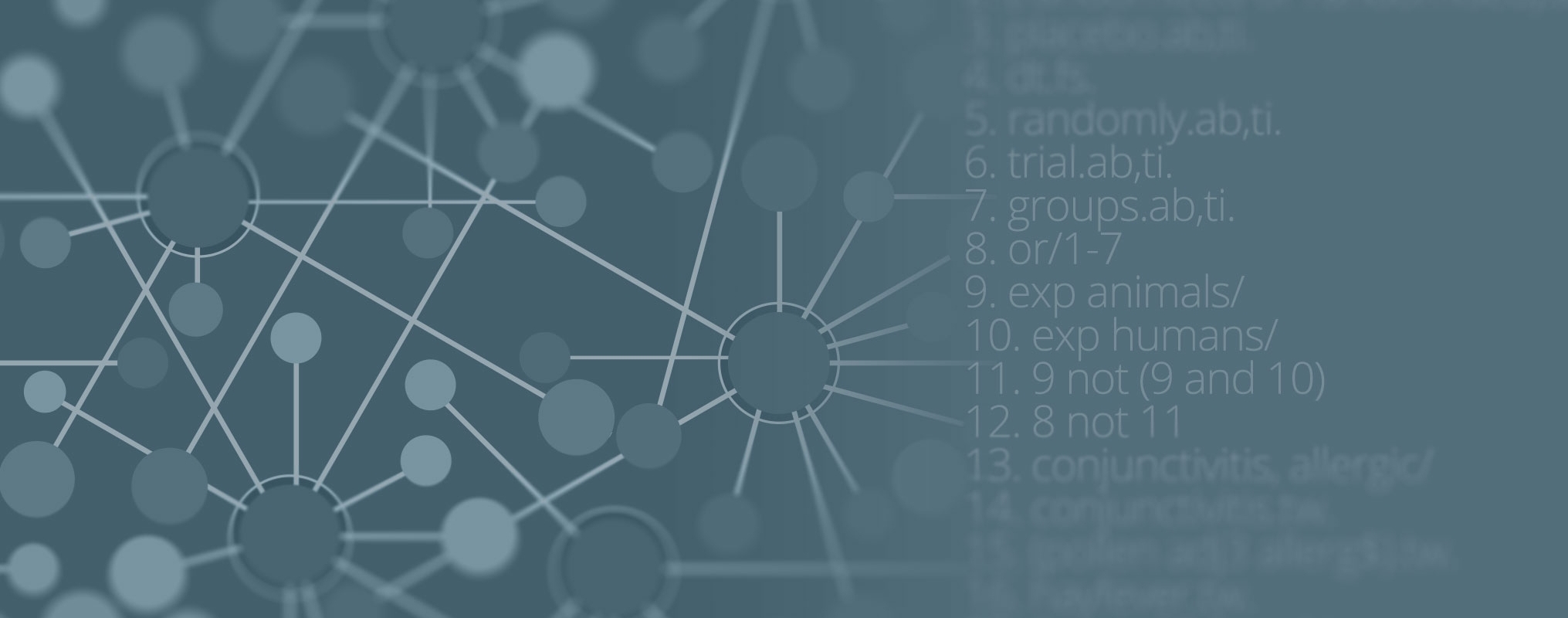
Advanced search doesn't have to be complex
Finding the right information at the right time is a constant challenge. Sometimes, a few keywords in a search box is good enough. But there are times when a more rigorous, precise approach is needed.
Up to now, the traditional solution has been to use 'advanced search' or command-line query builders. However, these require the use of complex Boolean expressions and offer limited support for error checking or optimization. Moreover, each database has its own interface and query syntax to learn. If only there was a simpler way to search accurately and effectively without worrying about syntax and vendor specifics. Well, now there is.
A visual approach
2Dsearch is a radical alternative to conventional 'advanced search'. Instead of entering Boolean strings into one-dimensional search boxes, queries are formulated by manipulating objects on a two-dimensional canvas. This eliminates syntax errors, makes the query semantics more transparent, and offers new ways to collaborate, share, and optimize search strategies and best practices.
Don't speak Boolean?
Create precise search strategies simply using drag & drop
Stuck for words?
Optimise your search with automated keyword suggestions
SHORT ON time?
Start from one of our pre-built templates and examples
Searching your own data?
We provide adapters for a range of sources

The advanced search you've been waiting for
According to a landmark McKinsey report, knowledge workers spend as much as 19% of their working week searching for and gathering information. Whether they eventually find what they are looking for or stop and make a sub-optimal decision, there is a high cost to both outcomes. Healthcare information professionals, for example, perform painstaking and meticulous searching of literature sources as the foundation of evidence-based medicine. However, systematic literature reviews can take years to complete, and new research findings may be published in the interim, leading to a lack of currency and potential for inaccuracy. Likewise, patent agents rely on accurate prior art search as the foundation of their due diligence process, and yet infringement suits are frequently filed due to the later discovery of prior art which the original search missed. And the recruitment industry relies on Boolean search as the foundation of the candidate sourcing process, and yet the #1 concern reported by agencies is difficulty finding candidates with appropriate skills and experience.
Our approach has the potential to profoundly change the way in which complex search problems are addressed in a wide variety of professions and applications. These include ‘traditional’ information professions such as scientific research and patent search, emerging sectors such as media monitoring and talent management, and students wishing to learn and develop advanced search skills.
interested?
Try it out!
Want to learn more?




